Seattle Water Heaters
Electric Water Heater Replacement
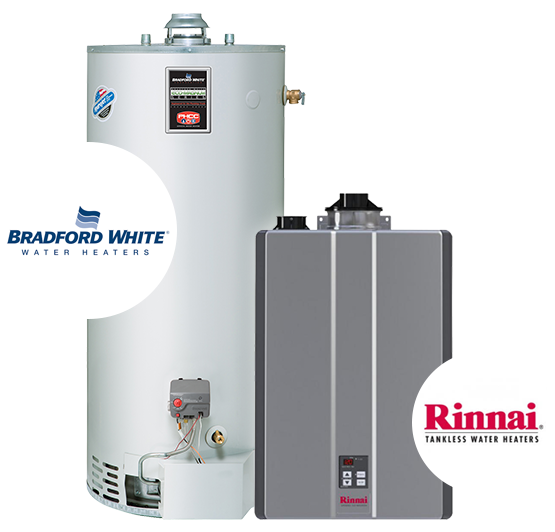
In need of a trustworthy and qualified electric water heater installation service in Seattle? Look no further than Seattle Water Heaters’ team of professionals. We’ve been installing different varieties of water heaters for many years, and we stay current on new models and advancements in technology. We’ll collaborate with you to select the ideal water heater for your residence or place of business, and we’ll install it swiftly, effectively, and most importantly, safely.
We provide FREE consultations since we recognize that not everyone is familiar with electric water heaters. We’ll go through all of your options, address all of your questions, and assist you in determining whether an electric water heater is the best choice for you. We’ll also provide you with a free installation cost estimate.
Call Seattle Water Heaters right away if you’re ready to get more hot water and lower your energy costs. We are here to assist you in choosing the finest option for your residence or place of business.
Electric Water Heater Cost
An electric water heater can be your best option if you want to reduce your energy costs. Although an electric water heater can initially cost more than a gas unit, overall costs are often lower. Electric models are frequently more effective, which means they’ll help you save money over time.
So, what is the cost of an electric water heater?
The size and kind of unit you select are just two of the variables that will affect the answer. However, generally speaking, a new electric water heater costs between $300 and $1,500.
It’s crucial to choose the appropriate size electric water heater for your needs while making your decision. In order to satisfy your hot water needs, a unit that is too little will have to work harder, whilst a unit that is too large will be an energy waster. To determine the ideal size for your home, use our water heater sizing calculator.
Numerous additional considerations, in addition to size, will influence the cost of your electric water heater. These include:
-
Water heater type
The type of water heater you select will greatly affect the cost of replacing your electric water heater. You can choose from a tank or tankless model. The tankless variants are typically more expensive.
Although the tank water heater is initially less expensive, the cost can pile up. Homes using tankless water heaters can save up to 34% on electricity when they use less than 41 gallons of hot water each day. Homes with higher water demand, averaging 86 gallons per day, can still achieve energy efficiency gains of up to 14% when compared to storage tank water heaters.
Tankless water heaters aren’t necessarily the best option for everyone. The initial cost of a tank water heater is lower, and buying an insulated model can cut down on standby heat loss and operational expenses. Depending on how often the household uses hot water, tank water heaters can be a more effective choice.
-
Installation
The cost of installing an electric water heater varies based on the type of unit and the difficulty of the installation. Installation should be quite simple if you’re replacing an existing water heater. The electrical system of your home can require additional wiring or other changes if you’re installing a new appliance. The price of installation may increase as a result.
-
Energy efficiency
The Energy Factor (EF) of an electric water heater is used to gauge its efficiency. The heater will be more effective and cost less to operate if the EF is higher.
-
Permit costs
Replacing an electric water heater often requires a permit if you live within Seattle. The cost of this permit is determined by a number of factors, including as whether an on-site inspection is required and whether your home’s electrical lines require any modifications or improvements.
Find out if obtaining the necessary permits is included in the cost of the electric water heater replacement when you receive an estimate. If so, you won’t need to bother about permits since the installer will already have them before the electric water heater is installed.
-
Location of the unit
The location of the heater influences the amount of manpower a heating repair company will require to perform the installation, which raises the price. Typically, those to be installed in easily accessible places will cost less than those that have to be hauled into constrained areas. The cost will also increase if you want the unit in a location that is remote from the main water lines, such as a barn or shed.
-
The disposal of the old heater
You may need to find someone to cart away the old appliance because it may not be covered by the estimate. You might ask a company that offers junk removal services to get it for you. This may result in increased costs.
-
Additional factors that Impact electric water heater replacement costs
Always budget for additional expenses that might not be accounted for in the estimated cost of replacing the water heater, such as the price of insulating the water heater or making the necessary improvements to the current service. Even though not every homeowner may incur these expenses, it is better to be ready than to panic at the last minute.
There are some electric water heaters that require an insulator, such as those in rental units. These are frequently referred to as “blankets for water heaters”. Depending on the design and size of the water heater insulation you select, buying one of these can increase your replacement cost by $10 to $40.
When you replace an electric water heater, there is a risk that some wiring or plumbing may need to be changed. For instance, if you are switching from a tank-style water heater to a tankless one, there may be the need to replace the circuit box or breakers to make room for the new electric water heater as it will use more electricity.
An electric water heater often has a higher initial cost than a gas-fired unit. However, the operating costs of an electric water heater will be lower in the long run than those of a gas-fired unit. Make sure you get an electric water heater with a high EF to improve efficiency and save operating costs.
Please get in touch with Seattle Water Heaters if you have any inquiries concerning the price of an electric water heater. We will be able to give you more detailed information and identify a cost-effective solution for your residence or place of business.
Electric Tankless Water Heater
Electric tankless water heaters are becoming more and more common in homes all around the United States, including Seattle. These cost-effective appliances offer an unending supply of hot water and help reduce consumers’ monthly utility costs. Our staff of qualified installers is here to assist if you’re considering installing a new electric tankless water heater in your house. We’ll guarantee that your new appliance is fitted correctly and complies with all applicable local building codes. To arrange a free consultation, get in touch with us immediately.
If you need a new water heater, you should think about an electric tankless model. These heaters are becoming more and more well-liked as a result of the benefits they provide over conventional storage tank heaters. As opposed to maintaining a vast tank of water at a constant temperature, they simply heat water as it is required, making them far more efficient. Additionally, they are smaller and occupy less room.
Electric tankless water heaters, however, can be a little trickier to install than their storage tank cousins. Because of this, it is always recommended to choose a qualified installer who is familiar with the particular type of heater. Our company has a group of skilled experts who can complete the installation of an electric tankless water heater swiftly and easily.
So, give us a call right away if you’re thinking about installing an electric tankless water heater in your Seattle home. We’ll be pleased to assist you in selecting the best model for your requirements and to answer any queries you may have. Naturally, we’ll also make sure it’s fitted correctly so you can start taking advantage of an on-demand hot water supply. Call Seattle Water Heaters right away!
How Does an Electric Water Heater Work?
In an electric water heater, electricity is used to heat water. When the electricity is turned on, an element within the heater heats the water. Typically, the element is made of metal, like copper or steel. At the base of the tank, a power source is linked to the heating element. The element heats up when the electricity is turned on, heating the water in the tank. Until the water reaches the proper temperature, this process continues.
Electric tankless water heaters heat the cold water that flows through the device using coils. Tankless water heaters just heat the water that is required, as opposed to storing hot water. An electric tankless water heater is intended to continually and on-demand deliver hot water, lowering heating expenses by up to 60%. A flow sensor turns on the heating unit when a hot water tap is turned on. The water is heated to a predetermined temperature as the heat exchanger warms up. Then, hot water is given to any open tap or other device that requests hot water.
Electric water heaters come in two types: tankless and storage. With storage water heaters, hot water is kept in a tank until it is needed. Without a tank, tankless water heaters heat water as it is needed. Although both kinds of electric water heaters need energy to run, they heat water in different ways.
The more popular kind of electric water heaters are storage water heaters. They may provide a lot of hot water and are less expensive than tankless water heaters. They can lose energy by storing hot water, which makes them less efficient than tankless water heaters. The tank may also deteriorate with time, which may cause leaks.
Tankless water heaters are more expensive than storage water heaters, but because they only heat water when it is required, they are more efficient. As a result, there is no energy waste and no corrosion risk. Tankless water heaters are also more space-efficient than storage water heaters. leaking in.
Electric water heaters are the most popular kind of heater. They come in tankless and storage types and heat water using electricity. Electric water heaters with storage tanks are less expensive than tankless ones, however they are less efficient. The tank may also degrade over time, necessitating an expensive replacement.
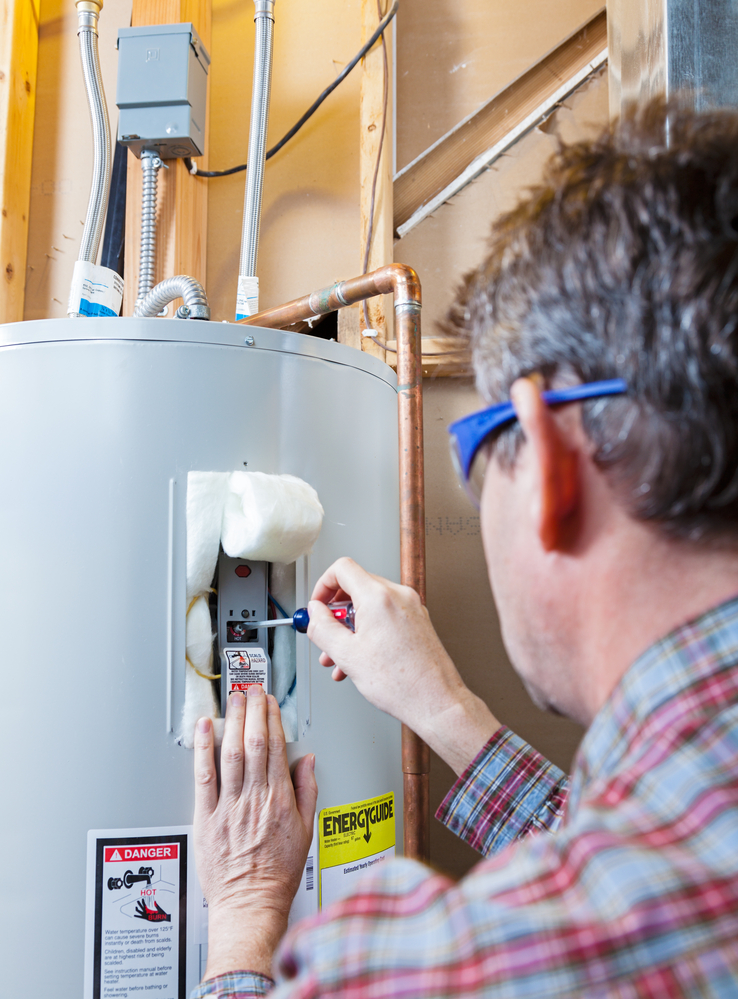
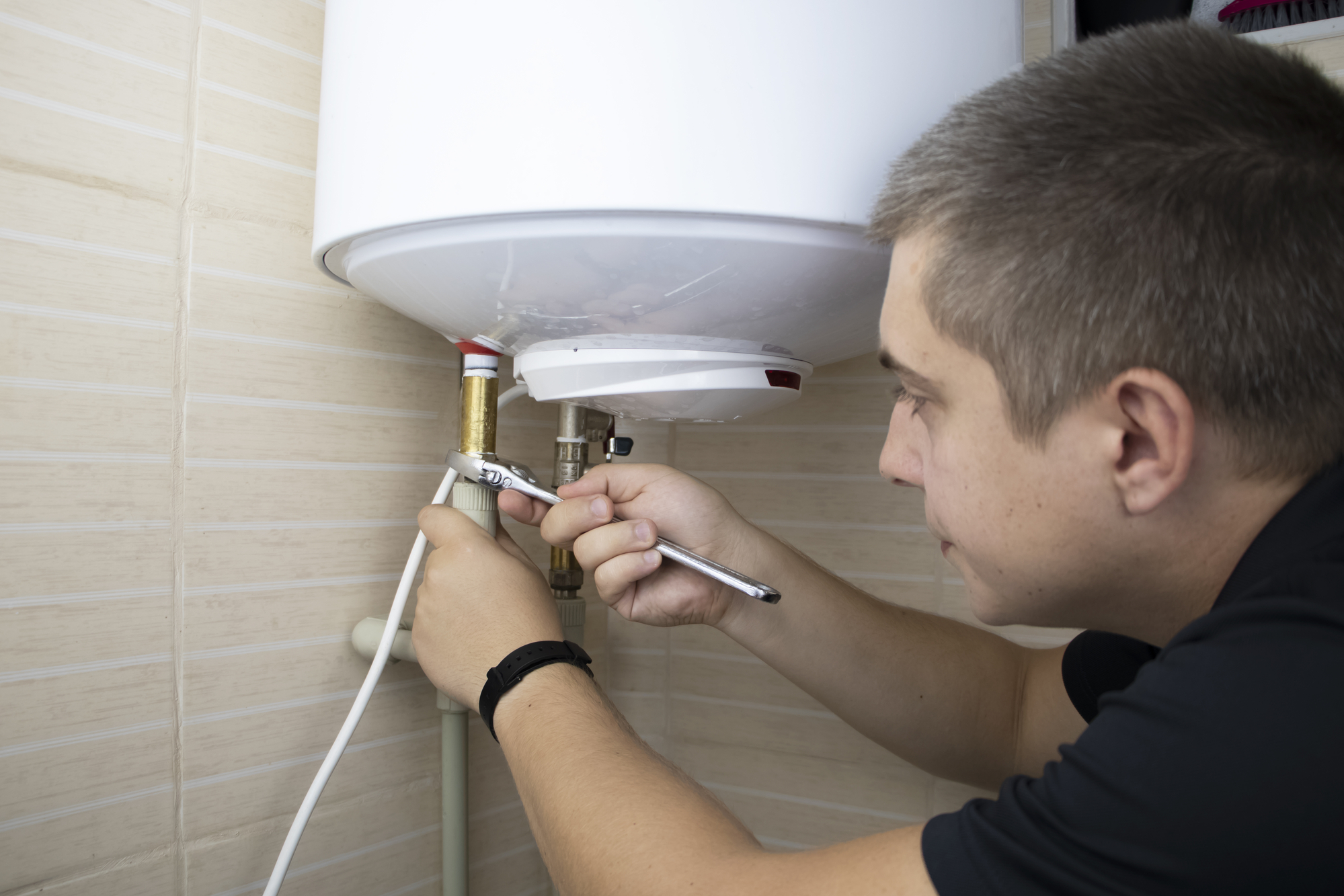
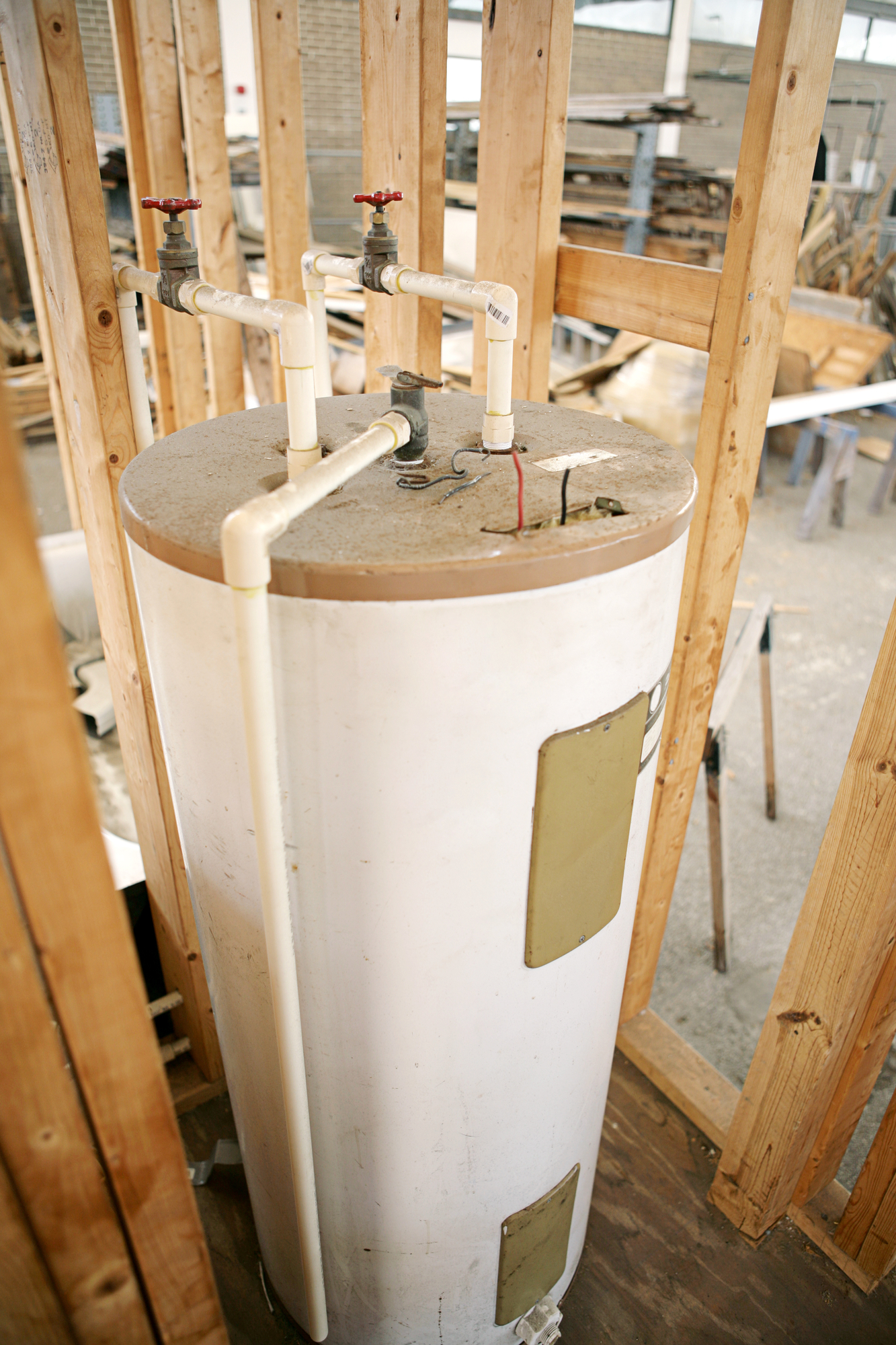
How Long Does an Electric Water Heater Last?
An electric water heater typically lasts between 10 and 12 years. The type and model of the water heater, as well as how well it is maintained and cared for, can all affect this estimate. With the right care and maintenance, some electric water heaters can endure for 15 years or longer, while others may only last a few. In the end, a variety of things will affect how long your electric water heater lasts.
The quality of the device itself is one of the most crucial elements that will determine how long your electric water heater lasts. A well-made, high-quality water heater will most likely last longer than a cheap, lower-quality type. The kind of electric water heater you buy will also impact how long it lasts. For instance, tankless water heaters often have a longer lifespan than the storage tank types.
Undoubtedly, even the finest electric water heater will eventually fail. All water heaters will eventually require replacement. However, by performing routine maintenance and taking good care of it, you may increase the lifespan of your water heater. In order to remove sediment and increase the longevity of your water heater, for instance, flushing and draining it once a year will help. Additionally, ensuring sufficient insulation for your water heater helps extend its lifespan.
Your electric water heater should endure for many years if you take care of it properly and carry out routine maintenance. But ultimately, you’ll have to replace your water heater. When it comes time to buy a new water heater, do your research and choose a quality type that will endure for many years.
Do Electric Water Heaters Consume a Lot of Energy?
This is a challenging issue to answer because the answer depends on a number of variables, including the size and model of the water heater, how much energy is used in your home, and more. Electric water heaters do, however, generally require a lot of electricity. In actuality, the average electric water heater uses around 18% of the energy used by a home, according to Energy Star. This implies that if you want to reduce your energy costs, one area you might want to concentrate on is an electric water heater. There are several strategies to lower the amount of electricity your water heater consumes, including insulating the tank, lowering the thermostat, and only using the heater only when necessary. You may simply reduce your electricity bill and save money on water heating by following a few easy steps.

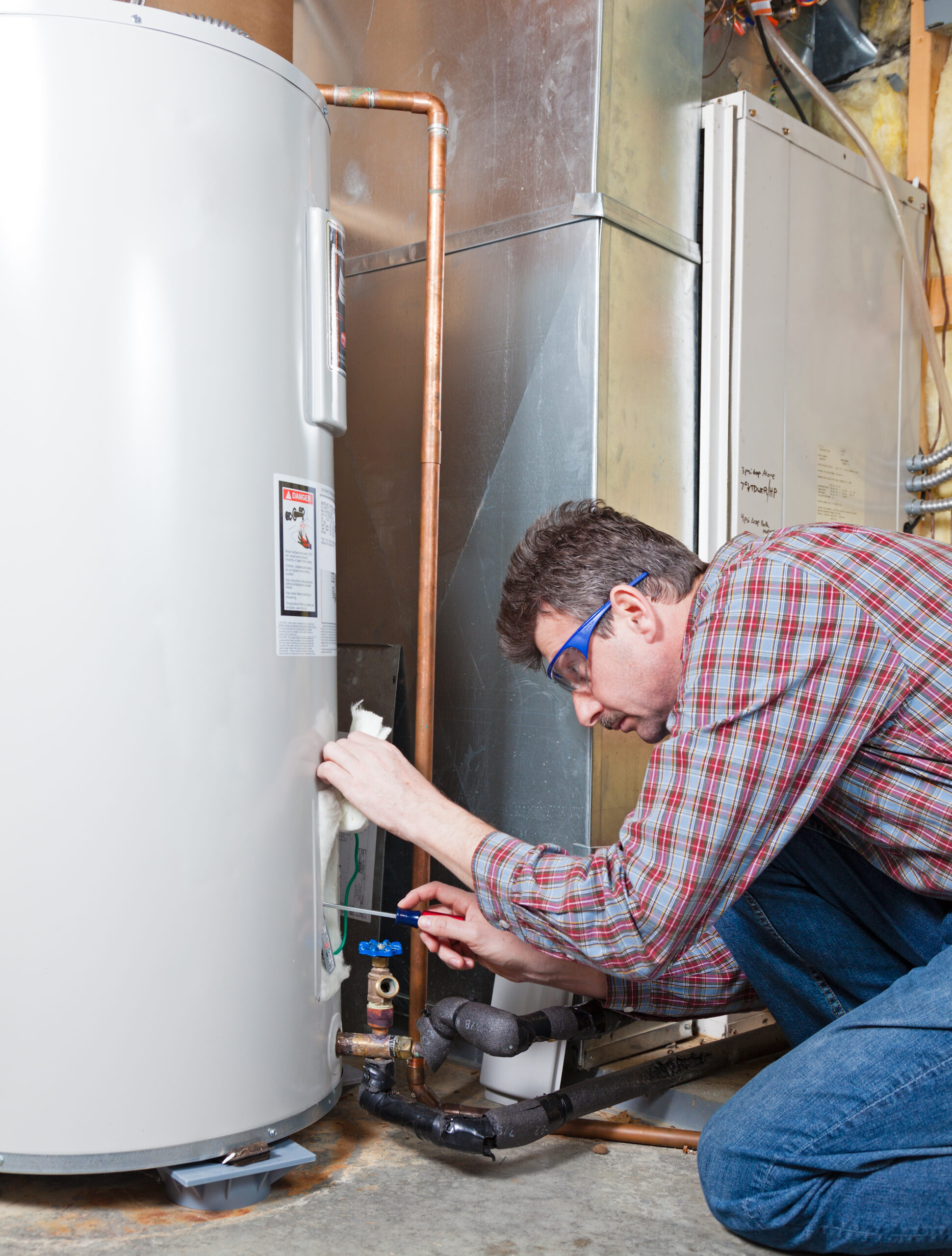
Is it Necessary to Vent Electric Tank Water Heaters?
No, venting is not necessary for electric tank water heaters. They may be installed nearly anyplace in your home, which is one of the main advantages of electric tank water heaters. However, if you’re thinking of using an electric tank water heater, there are a few factors you should bear in mind.
First, compared to gas-powered ones, electric tank water heaters are substantially less efficient. This implies that an electric model will probably result in greater energy costs. Additionally, compared to gas units, electric tank water heaters typically have shorter lifespans. Finally, compared to gas units, electric models would need more maintenance. Overall though, if you’re searching for a dependable and economical water heater, electric tank water heaters can be a decent choice.
Please get in touch with us right away if you have any queries regarding whether an electric tank water heater is the best option for you. We’ll be pleased to assist you in locating the ideal water heater for your home.
Maintaining an Electric Water Heater
An electric water heater requires the same level of maintenance as any other electronic appliance, if not more. Even while manufacturers offer the best components that can withstand repeated heating and cooling, you must keep in mind that even the best components may deteriorate if used under continuous pressure. Here are some maintenance tips for electric water heaters to help them last longer despite the constant expansion and contraction caused by heating and cooling.
-
Avoid leaving the electric water heater running for too long
The water heater is typically left on for extended periods of time, especially early in the morning. The common belief is that keeping it on will save time because everyone needs warm water before rushing off to work or school. That may have been the case in the past, but electric water heaters today heat water in under 5 minutes. It makes more sense to turn on the water heater only five minutes before you need it rather than an hour in advance because doing so will shorten the appliance’s lifespan.
-
Reduce the temperature to save more electricity
Maintaining your water heater will help you save money on electricity! The water will heat up more quickly if you pick a lower temperature setting. The water heater will have to operate less because of the lower temperature, extending its lifespan. It will also be less likely for accidental burns to occur if the water is warm rather than extremely hot. Families with young children should especially turn the heat down.
The water heater’s temperature setting needs to be at most 120 degrees Fahrenheit. This temperature balances efficiency with safety. It is imperative to maintain your hot water heater so that you never run out of hot water in the winter when you need it the most.
-
Inspect the anode rod inside the tank (especially before winter)
An anti-corrosion anode rod is located within the tank of water heaters. Rust and other contaminants in the water are drawn to this rod, keeping the tank from corroding or rusting. But as a result, every few years, the rod itself corrodes away.
The anode rod should be inspected every three years to see if the magnesium coating on the outside has corroded away and if the inner steel core is visible by at least 6 inches. The rod has to be changed if that is the case. The rod must also be replaced if it is covered in whitish calcium deposits (hard water causes this), or if its thickness has significantly decreased to less than half an inch.
-
Flush the tank regularly
The efficiency of the heater may be affected over time by silt accumulation at the tank’s bottom. Regular tank cleanings will aid in preventing this issue.
-
Check the pressure release valve
At least once a year, ensure that the temperature and pressure release valves are operational. By releasing the pressure a few times, you can verify this. If the water heater’s relief valve is leaking, it is a serious problem. Your water heater only needs to have some water drained out of it and the outlet tube removed. After that, just replace the valve, and you’re done!
You can ensure that your electric water heater lasts for many years by adhering to these easy suggestions. Contact our Seattle plumbers and licensed water heater engineers for help if you have any additional queries concerning maintenance or troubleshooting.

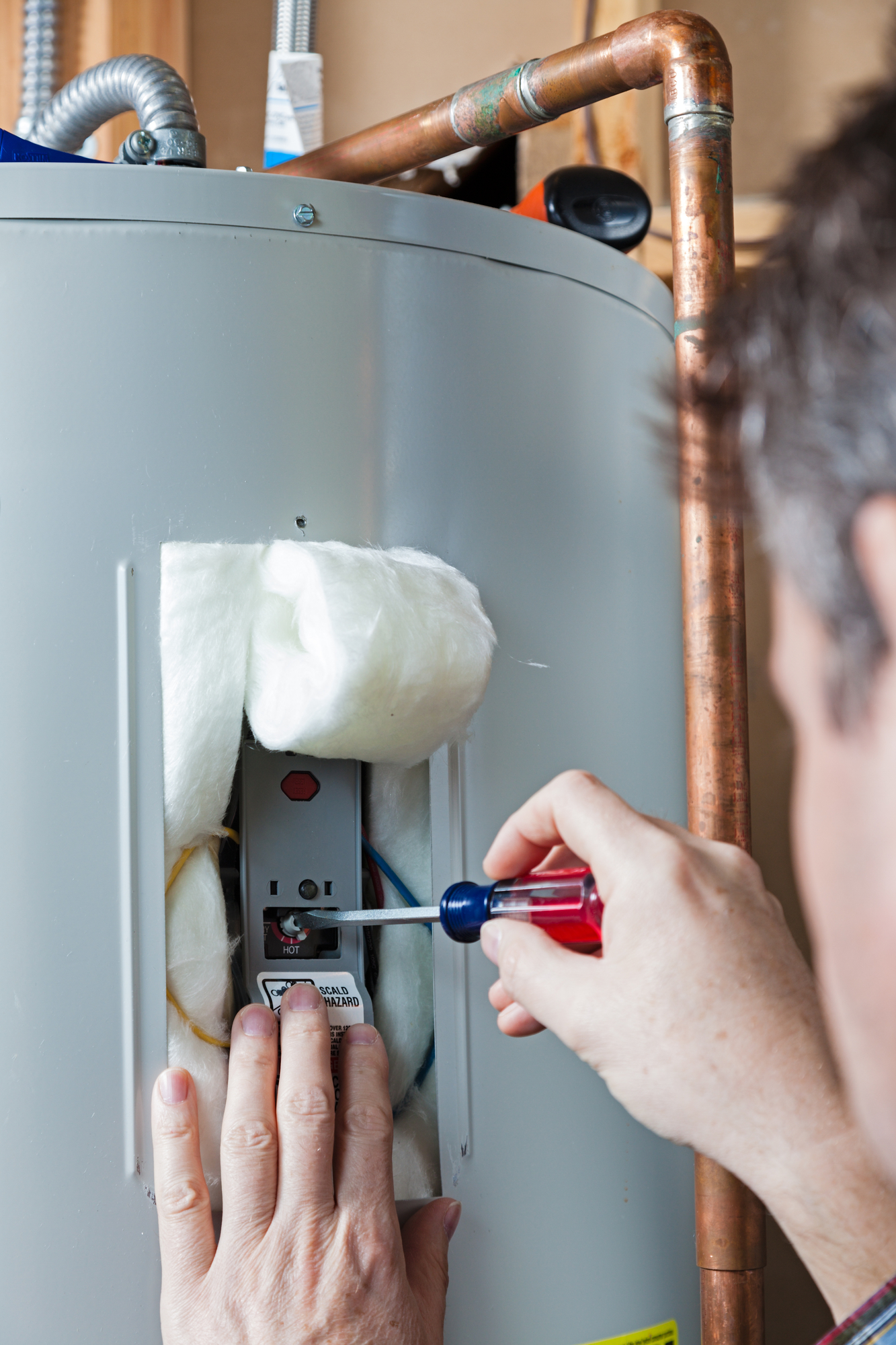





Is it Worth Switching to a Tankless Water Heater?
When determining whether or not to switch to a tankless water heater, there are numerous factors to take into account. Cost is most likely the most significant one. Water heaters without storage tanks might cost a lot more than those with tanks. In the long run, nevertheless, they might also help you save some money. You save money by not having to pay to keep a tank of hot water heated and available for use all the time thanks to tankless water heaters. Over time, it could result in significant energy savings.
Your need for hot water should be taken into consideration. A tankless water heater can be an excellent choice for you if you frequently host guests or have a large family because it can deliver an unending supply of hot water. On the other hand, a conventional storage tank water heater can be a better choice for you if you have a small home or relatively low hot water needs.
Finally, while determining whether to switch to a tankless water heater, it’s crucial to take the installation procedure into account. Before switching to a tankless water heater, it’s crucial to confirm that your property is suitable for this sort of system because tankless water heaters call for unique electrical and plumbing connections. Otherwise, you may have to pay for costly repairs or possibly replace your entire water heater later on.
You may decide whether converting to a tankless water heater is ideal for you and your house by weighing all of these variables. Ultimately, it’s crucial to pick the solution that will best serve your needs and give you the most economical and efficient way to heat your water.
-
If I install a tankless water heater, will my electric bill go up?
It’s possible that you’ll experience a slight increase in your electrical cost if you go from a gas water heater to an electric tankless water heater. However, since you have removed a gas appliance from your home, your gas cost should go down. Tankless water heaters are also incredibly energy-efficient, and many homeowners report that their electrical expenses have not changed significantly. Tankless water heaters also often use less water, which could result in a decrease in your water usage and additional cost savings.
-
With a tankless water heater, do you ever run out of hot water?
No, a tankless water heater ensures that you never run out of hot water. The fact that tankless water heaters provide limitless and endless hot water may be their main selling feature. Tankless water heaters heat the water as it circulates through the system using an internal heating element. You no longer need to wait for a storage tank full of water to heat up before you get hot water thanks to this cutting-edge heating system. Instead, the heating element activates, giving you access to hot water right away.
Although you might experience slight drops in your gas and water costs, this should not be the main justification for installing a tankless water heater. For some households, the savings could be substantial, but it all depends on how frequently you use hot water.
-
How long does a tankless water heater last compared to a conventional water heater?
A tankless water heater will survive almost twice as long as a traditional water heater. When maintained properly, traditional types with storage tanks often last 10–12 years. A tankless water heater, on the other hand, has a lifespan of about 20 years (with the proper maintenance of course). Despite having a higher initial purchase price, a tankless water heater provides lower long-term expenditures when compared to a conventional water heater when the use-value is taken into account.
How Much Room is Required for an Electric Hot Water Heater?
For optimal installation, an electric hot water heater requires four to five cubic feet of space. The majority of homes have this much space available, however some may need to make adjustments in order to accommodate the new appliance. To ensure a secure and accurate installation, it’s crucial to carefully follow the manufacturer’s instructions. Lack of room may cause issues with the equipment, including poor heating or even fires. Before buying and installing a unit, be sure it will fit inside your house by checking its dimensions.
Contact a qualified contractor or plumber to evaluate the situation if you’re unsure whether your home has enough room for an electric hot water heater. They can help you determine whether or not your home can fit the new appliance and can offer suggestions in that regard. An electric hot water heater can last for many years with correct installation and maintenance. In order to ensure the safe and effective operation of your new heater, carefully follow all instructions.


Can you switch from a gas to electric water heater?
The answer to this question is dependent on a number of things, including the age and condition of your gas water heater, the kind of electric water heater you’re thinking of buying, and whether or not your house is already wired for electricity. You might be able to simply replace your gas water heater with an electric one in some circumstances. However, in some circumstances, you might need to install new electrical cabling to make room for an electric water heater. As a result, it is important to get professional advice before making any decisions on the conversion from gas to electric.
You should also consider your budget and the sort of water heater you currently have. It is possible to switch to an electric water heater if you currently have a standard gas water heater. However, switching to electric might not be practical if you currently have a tankless gas water heater. A qualified plumbing or HVAC contractor, like Seattle Water Heaters, can help you decide whether moving from gas to electric is the best option for you.
Are Electric Water Heaters More Safe Than Gas Ones?
Regarding the relative safety of gas and electric water heaters, there is no simple answer. Both offer advantages and disadvantages, and ultimately, it comes down to your particular circumstance. Here are some factors to think about before choosing:
A better option might be an electric water heater if you’re concerned about the possibility of fire. Hazardous gas leaks from gas water heaters can occasionally cause fires. This risk is absent with electric water heaters.
However, the cost of operating electric water heaters is frequently higher than that of gas water heaters. Additionally, they use more energy to operate, increasing your carbon footprint if you choose an electric water heater.
A gas water heater can be a better option if you live in a region where power outages are often. While electric devices won’t function after a power loss, gas models can.
The ideal kind of water heater for you ultimately depends on your individual requirements and circumstances. Before making a choice, take into account all of these factors.
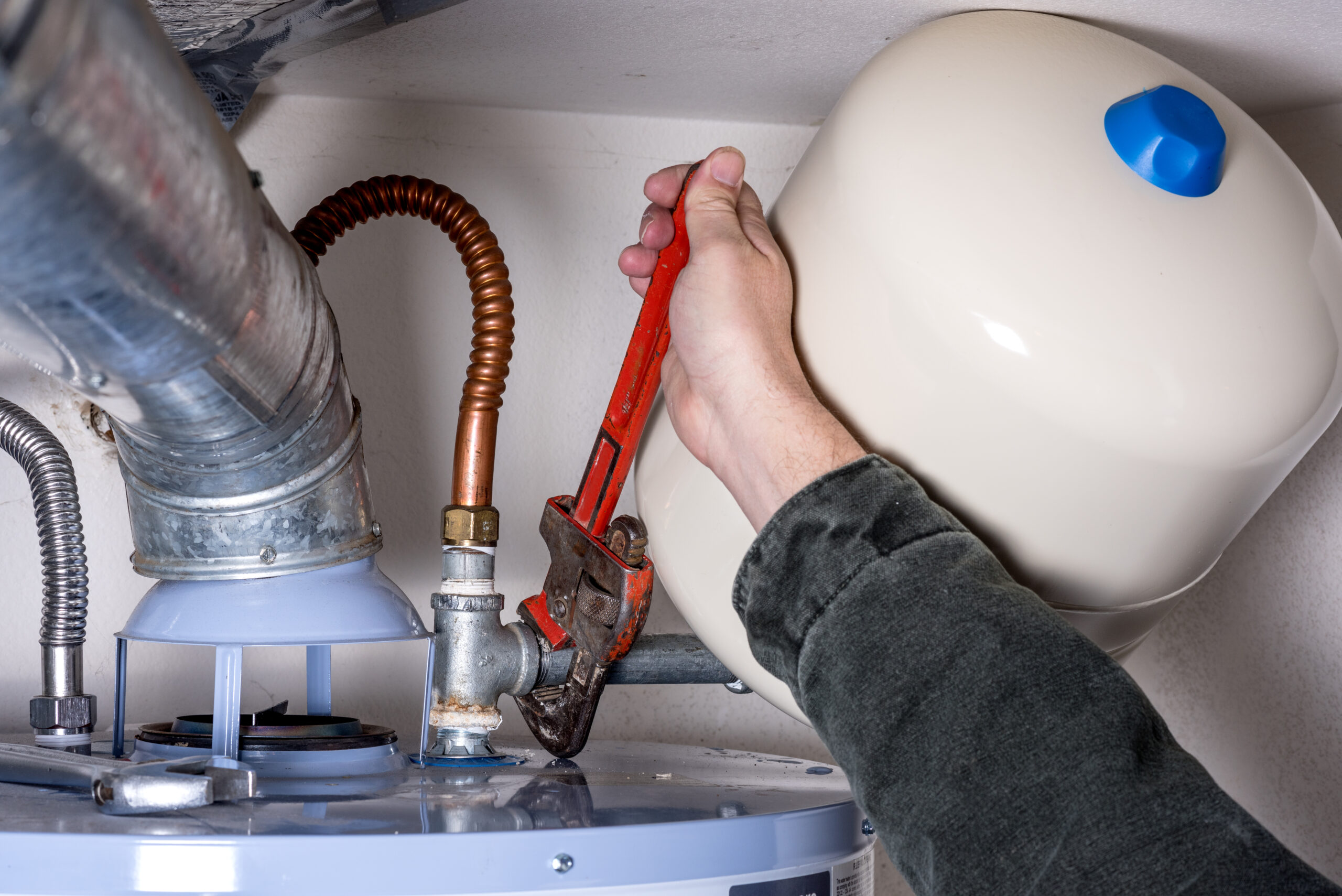

How long does it take a 50-gallon electric water heater to heat up?
A 50-gallon electric water heater needs about 4 hours to heat up. This is based on the premises that the water heater is turned to its highest setting and that the ambient temperature is 68 degrees Fahrenheit. The temperature outside and the water heater’s settings will affect how long it takes to heat up.
